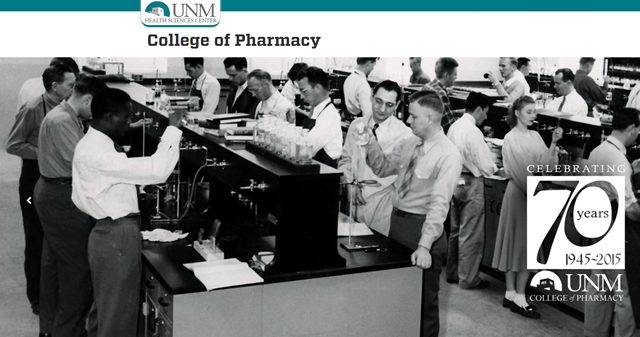
Pharmaceutical Sciences ETDs
Publication Date
7-2-2011
Abstract
Diabetes is a world-wide epidemic; 90-95% of diabetes cases are type 2 in nature. Albuminuria and hypertension are risk factors of diabetes complications, specifically nephropathy and cardiovascular disease. Angiotensin-converting enzyme inhibitors (ACEIs) or angiotensin receptor blockers (ARBs) are recommended as monotherapy to reduce albuminuria and hypertension. Because of this, we sought to compare patients with type 2 diabetes (P2DM) who received neither therapy to those who received either monotherapy for end-stage renal disease (ESRD), cardio- and cerebro- vascular disease, and all-cause mortality. Additionally, because there are very limited data on comparisons between ACEI and ARB therapies, none of which compare occurrence of incident cardio- or cerebro- vascular disease or mortality, these monotherapies were compared. Moreover, because diabetes incidence is expected to increase, healthcare utilization was also analyzed. This longitudinal study followed P2DM maximally for five years. Comparisons between patients receiving neither therapy and either monotherapy were performed with multivariate logistic or negative binomial regression, while comparisons between ACEI and ARB patients were performed with propensity score weighted logistic or negative binomial regression. Compared to neither therapy, ACEI patients were associated with lower odds of ESRD, higher odds of incident cardio- or cerebro- vascular disease events, lower odds of mortality, and higher incidence rates of healthcare utilization. Treatment selection existed between ACEI and ARB monotherapies in P2DM, necessitating propensity score analysis (PSA). Fortunately, the PSA balanced between group characteristics and had substantial overlap in propensity scores between groups, allowing for precise estimates of causal interpretation. No differences were found between ACEI and ARB monotherapies for all endpoints studied. Since only associations can be found between comparisons of ACEI and ARB patients with neither patients and because ACEIs or ARBs are recommended in guidelines, significance is focused on comparisons between ACEI and ARB patients. This is the second study lasting more than a year comparing outcomes of ACEI and ARB monotherapies for nephropathy and the first study comparing ACEI and ARB monotherapies for other endpoints. This study confirms that ACEIs and ARBs have no significant difference in effects for two years mean follow-up. Until this study, similar effects have only been assumed.
Second Advisor
Raisch, Dennis W.
First Committee Member (Chair)
Borrego, Matthew E.
Degree Name
Pharmaceutical Sciences
Second Committee Member
Murata, Glen H.
Level of Degree
Doctoral
Third Committee Member
Sather, Mike R.
Department Name
College of Pharmacy
Project Sponsors
American Society of Health-System Pharmacists (ASHP)Foundation, Biomedical Research Institute of New Mexico
Language
English
Document Type
Dissertation
Keywords
Non-insulin-dependent diabetes--Chemotherapy, Angiotensin converting enzyme--Inhibitors, Angiotensin II--Antagonists.
Recommended Citation
Campbell, Heather. "Comparison of monotherapy with angiotensin-converting enzyme inhibitors or angtiotensin receptor blockers in improving health outcomes among veteran patients with type 2 diabetes." (2011). https://digitalrepository.unm.edu/phrm_etds/3
